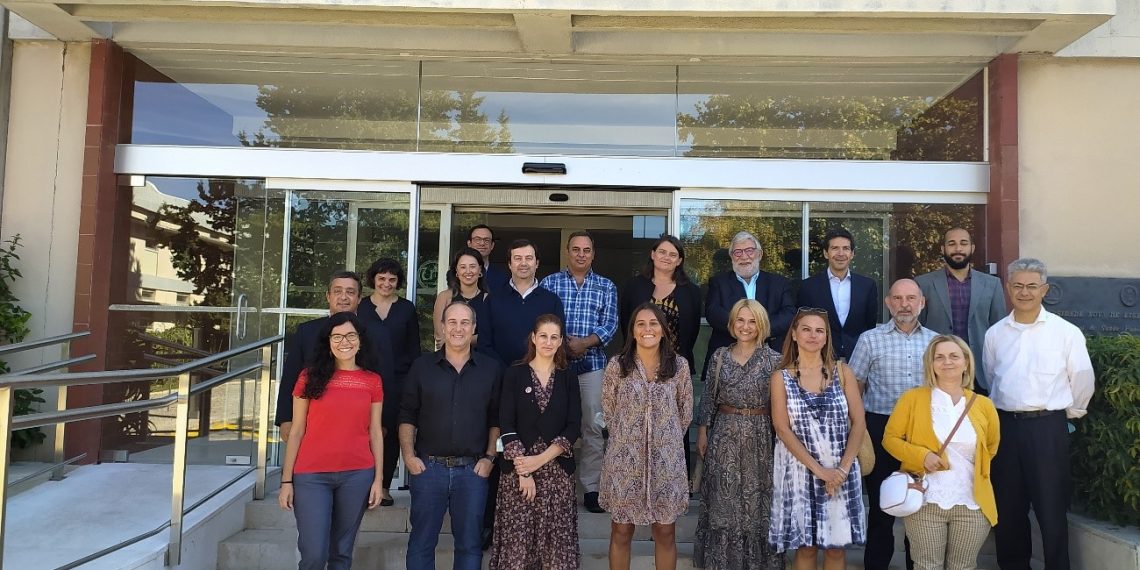The Centre for Information Systems and Computer Graphics (CSIG) European integrates a project in science education that addresses the challenges of public health.
PAFSE “Partnerships for Science Education” focuses on establishing partnerships between schools, universities, research centres, laboratories, companies, associations, civil society representatives, among other agents, involving them in endeavours to improve education in the STEM (Science, Technology, Engineering and Mathematics), and contribute to public health. In the first phase, the project will engage the entire school community and partners, supporting them in actions to reduce the risks of communicable diseases and epidemics, as well as other problems like childhood obesity, cancer, zoonoses, diabetes, road accidents or health inequities.
The PAFSE project – Partnerships for Science Education – comprehends nine institutions from four countries – Portugal, Greece, Cyprus, and Poland. In Portugal, it is led by the National School of Public Health and supported by the Directorate-General for Education and the Directorate-General for Health. The European Commission (EC) allocated €1.46M to fund the project. This is good news for the country, since it has a positive impact on the Portuguese participation and leadership in the European research support programme.
The COVID-19 pandemic has had a significant impact on society, while bringing the question of public health into the global agenda. The concern with the spread of infectious diseases and zoonoses, i.e., diseases that jump from animals to humans, is one of the questions addressed not only by the scientific community, but also by the population in general.
This was the motivation behind the development of the PAFSE project, involving researchers from five Portuguese institutions: NOVA National School of Public Health (project leader), Institute for Systems and Computer Engineering, Technology and Science (INESC TEC), University of Minho, Lisbon Institute of Engineering and National Road Safety Authority. INESC TEC will be represented by researchers Hugo Paredes, Tânia Rocha, Arsénio Reis and João Barroso, coordinated by Paulo Martins.
In order to meet the objectives, the members of the consortium will establish several partnerships with project’s stakeholders, towards promoting learning among 7th, 8th and 9th grade students, focused on health literacy in science, physics, chemistry, mathematics and information technology disciplines. The project also includes activities in science clubs and community environments, with the support of partners, using innovative learning environments to generate interest among younger people (in terms of STEM curricula and jobs), thus making them ambassadors of public health in their communities. In this sense, the Portuguese consortium calls for the participation of entities such as schools, universities, research centres, companies, associations, or civil society representatives in the science education networks that will be organised in several regions of the country.
By establishing and boosting science education networks based on schools, the PAFSE will have a significant impact in terms of citizens’ empowerment, thus contributing to the sustainable development goals (SDGs).
PAFSE’s targets more than 3000 students from four countries – Portugal, Cyprus, Greece, and Poland –, with more than 1000 schools in Europe benefiting from the project.
The consortium of the project – starting in September 2021 and lasting until 2024 – includes four other entities, in addition to the Portuguese partners: Instituouto Technologias Ypologistonkai Ekdoseon Diofantos (Greece), Panepitismio Ioannion (Greece), University of Cyprus (Cyprus) and Uniwersytet Im. Adama Mickiewicza W Poznaniu (Poland).
The project received €1.46M under the EU Research and Innovation programme Horizon 2020.
The INESC TEC researchers mentioned in this news piece are associated with INESC TEC and UTAD.




 News, current topics, curiosities and so much more about INESC TEC and its community!
News, current topics, curiosities and so much more about INESC TEC and its community!